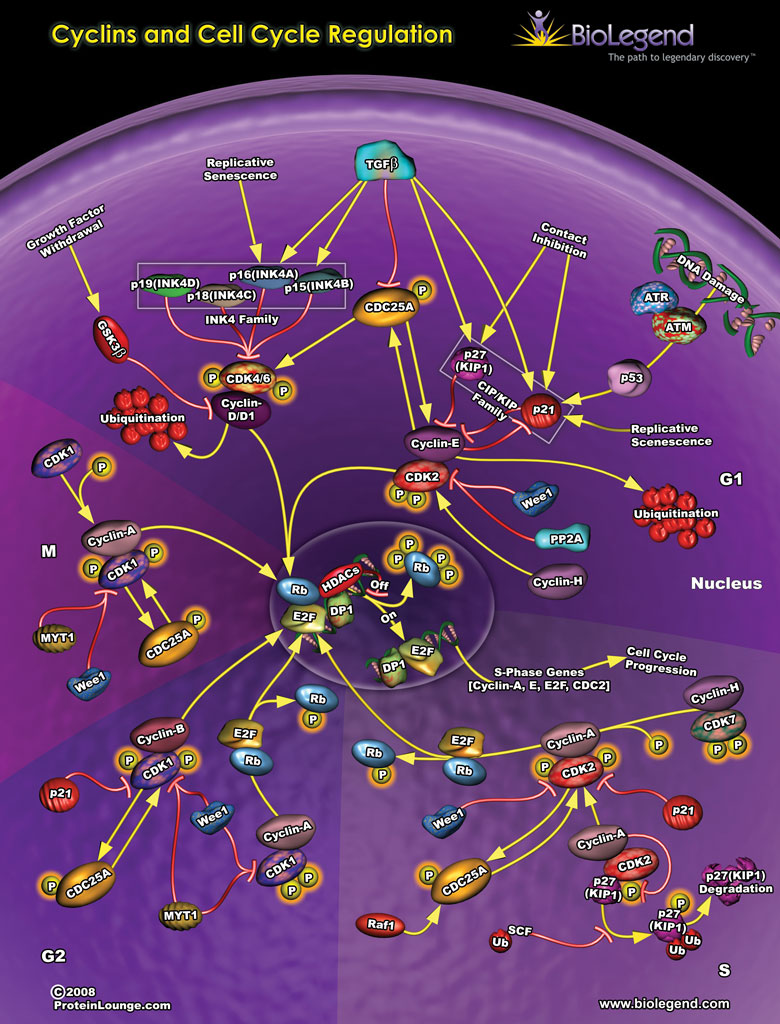Cyclins and Cell Cycle Regulation
The cell cycle is a series of steps that cells must undergo for replication. Cells can divide in response to stimuli such as growth factors and cytokines, or specific antigens. This response must be tightly regulated, since improper cell proliferation can lead to tumor growth or developmental problems. Interphase consists of G1, S, and G2 phases, during which the cell replicates genomic material and prepares for cell division. Progression through these phases is regulated by cyclin-dependent kinases (CDKs), which are activated when bound to specific cyclin proteins. Cyclin D binds to CDK4/6, which translocate to the nucleus to regulate progression through the G1 phase. Cyclin E binding to CDK2 initiates the transition into S phase, and is needed to clear the restriction point. ATM sensing of DNA damage can block CDK2 activation. Cyclin A binding to CDK2 regulates progression through S phase, and cyclin B binding to CDK1 drives entry from G2 into M phase (mitosis and cytokinesis).
Click on the poster below to view the interactive version.
 Login / Register
Login / Register 








Follow Us